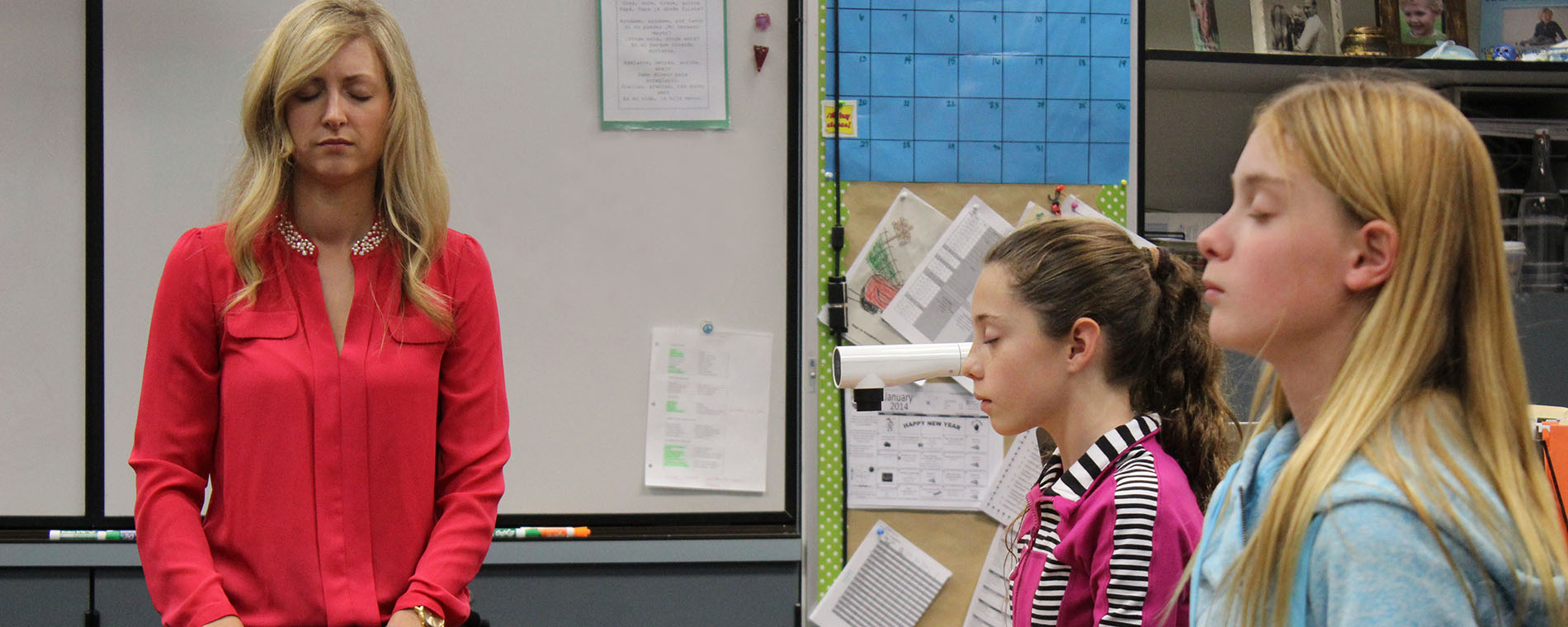by Eric Garner, BCHD Communications Specialist
Neuroscience. Mindful awareness. Positive psychology. Social-emotional learning.
No, these aren’t lessons being taught to clinical psychologists or even aspiring medical students. Rather, they’re four components that form the backbone of a cutting-edge program – founded by The Goldie Hawn Foundation and led by Beach Cities Health District – being taught throughout Redondo and Hermosa Beach elementary and middle schools to help students better manage their emo- tions and stress.
Known as MindUpTM, the program’s evidence-based curriculum blends mind- ful awareness and relaxation techniques with the science behind how the brain works and reacts to stimuli – specifically stress, anger and anxiety, which research shows to be more prevalent among young people today – to help students regulate their emotions and grow socially.
Local teachers and counselors, with guidance from the Health District’s certi- fied MindUp trainer, help students hone their skills through focused breathing exercises, lessons on the neurochemistry of behavior as well as interactive group discussions on strategies to resolve peer- to-peer conflict.
As Beach Cities Health District Chief Medical Of- ficer Dr. Lisa Santora points out, students not only make better decisions when they are cool, calm and collected, they also reap health and social benefits.
“Stress and anxiety reduction at a young age can help prevent future illnesses like depression, high blood pressure and substance abuse,” said Santora. “Ad- ditionally, students who are relaxed, empathetic and mindful are more prepared to become lifelong learners and productive citizens – as well as less likely to encoun- ter disciplinary issues at home and school.”
Santora added that teachers commonly report de- creases in behavioral problems following the implemen- tation of MindUp. And she noted that kids with fewer of these issues experience greater educational and occu- pational success.
For one local elementary student, dealing with At- tention Deficit Hyperactivity Disorder (ADHD), MindUp gave her the confidence and wherewithal to deal with teasing.
“I use breathing techniques to calm myself,” she said, “so I act rationally instead of impulsively.”
Another student, a 6th grader, uses the MindUp les- sons to manage his anxiety.
“When I’m feeling depressed,” he said through tears, “I know to focus on my breathing.”
And that’s why MindUp matters.




